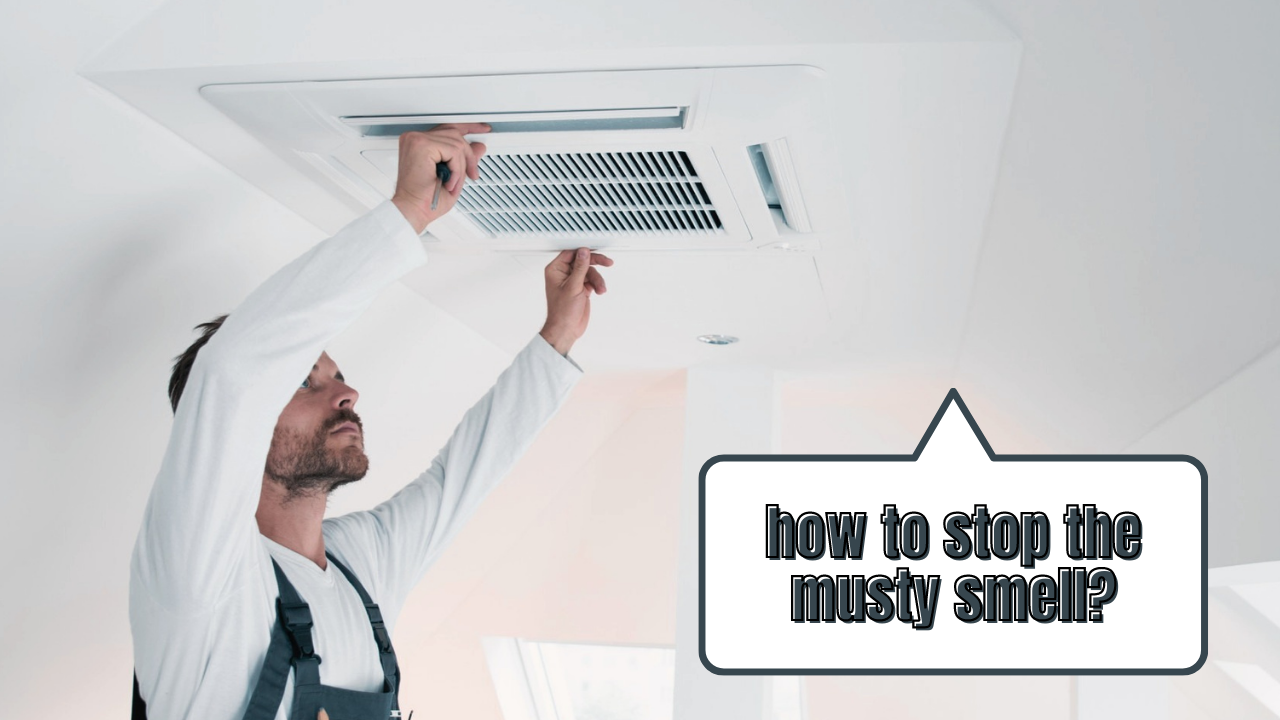Does your air conditioner smell musty? This means your central air conditioner smells like a pair of stinky feet, dirty socks, or blue cheese– enough to make you wrinkle your nose and run from the room. There are plenty of reasons why your AC unit emits a musty odor. In most cases, it is because of bacteria, mildew, or mold build-up on your evaporator coil. Any excess water may also make your central air conditioner smell musty.
An air conditioner's musty smell is also a common issue if you are in an area with frequent rainstorms (moisture). Let's discuss the different culprits behind a window air conditioner that smells musty and some expert-backed tips to help you resolve the issue.
Why Does My Air Conditioner Smell Musty?
Picture this: You're finally back home after soaking in the scorching heat of the summer. You catch a strange, musty whiff when you turn on your AC unit for that much-needed comfort. That sounds like a deal-breaker, right?
The moment you notice this, it would be best to act at once and search how to stop the musty smell from your air conditioner as soon as possible. This may potentially indicate a potential bacterial growth build-up, allowing mold and mildew to thrive.
Is a Musty-smelling AC a Matter of Concern?
Once you notice a musty smell from your AC unit (similar to dirty socks or rotten eggs), this may suggest an underlying issue with the system. The most common culprit is the presence of contaminants inside your dark and humid AC system, which serves as an ideal breeding ground for bacterial growth.
So yes, the musty smell from your air conditioner can be dangerous– spreading mold spores into various living spaces inside the home. This may trigger health issues, such as severe allergies.
Basic Troubleshooting: How to Remove Musty Smell from Air Conditioner

As much as we recommend finding a professional to take care of this problem, there are steps you can follow to find the source of the musty AC smell and how to fix it. We've listed them below for your reference:
Naturally, the air from the AC vents must not have a foul odor. It would be best to consult a local HVAC professional to assess the issue before the air conditioner's musty smell gets out of control.
Common Reasons Why the AC Unit Smells Musty
Here are some of the most common culprits behind the musty smell from your AC unit, so you know where to look and diagnose the problem.
With that, have your HVAC technician look to ensure your air conditioning unit has the correct size for your home needs. This will depend beyond your home's square footage, as other factors will come into play: the number of people in your home, the insulation, and the local climate/environment.
Frequently Asked Questions (FAQs)
Can I spray Lysol on my home AC vents?
Although Lysol may be your preferred all-purpose cleaner, it is not recommended to use it inside an air conditioner. Lysol is very explosive due to the ethanol alcohol in it, which means that spraying it close to your air conditioner's motor might harm it or perhaps set it on fire or explode. Fortunately, many alternatives effectively clean and sanitize your home's AC ducts and vents without using ethanol alcohol or other combustible substances.
How does mold get in my air conditioner?
Regardless of whether you are indoors or outdoors, mold spores are always in the air around you. When they find a moist area to settle, these invisible spores develop into a mold, which is usually not a problem. Your air conditioner is a dark, confined chamber that regularly becomes damp from condensation and rain, making it difficult to completely dry, mainly if used daily. (Related: 5 Things To Do If You Find Black Mold In Your Air Conditioner)
How do you get the musty smell out of an AC?
You can clean your AC unit yourself. However, to avoid hurting yourself or causing harm to the AC, you should take basic safety precautions. The following procedures can assist you in getting rid of the musty odor coming from your air conditioner:
